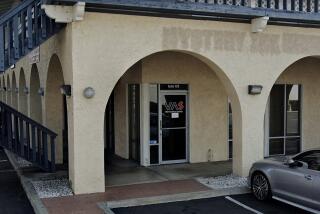O.C. Transit Agency Sues Auditors Over ’94 Bankruptcy Loss
- Share via
SANTA ANA — KPMG Peat Marwick, the Big Six auditing firm that is defending a $3-billion bankruptcy suit by Orange County, has been hit with another multimillion-dollar lawsuit resulting from the collapse of the county’s investment pool nearly two years ago.
In a suit filed last week, the Orange County Transportation Authority is seeking a minimum $400 million from Peat Marwick, alleging that the auditing firm failed to warn agency officials about the high-risk investment strategies in the investment pool.
Peat Marwick is being sued for $3 billion by county attorneys who charge that the auditing firm either overlooked or ignored the investment strategy of former Treasurer-Tax Collector Robert L. Citron.
Peat Marwick officials could not be reached for comment Monday evening, but they have consistently maintained that the firm’s auditors acted properly in reviewing Orange County’s investment portfolio.
The allegations in the lawsuit mirror charges in the county’s suit filed in December.
The OCTA suit states that the agency retained KPMG to audit its finances between 1991 and 1994, including $1.1 billion invested in the county-run pool.
Despite keeping “all its financial eggs in the pool’s basket,” transit officials did not know that the “once conservative pool” had been transformed in a massive gamble that interest rates would remain low or fall even more, the suit states.
The suit alleges that the agency, which provides bus and transportation services to county residents, lost more than $225 million when the pool crashed in December 1994.
In addition to the investment loss, state legislators approved bailout legislation that would divert $570 million from the agency to the county treasury during the next 15 years, according to the lawsuit.
The suit alleges that Peat Marwick officials knew or should have known that in several months preceding the county’s bankruptcy, “the problems in the pool were so severe that the pool was in effect insolvent.”
Instead, the auditing firm maintained that the investments were “safe and liquid,” the suit states.
More to Read
Sign up for Essential California
The most important California stories and recommendations in your inbox every morning.
You may occasionally receive promotional content from the Los Angeles Times.












